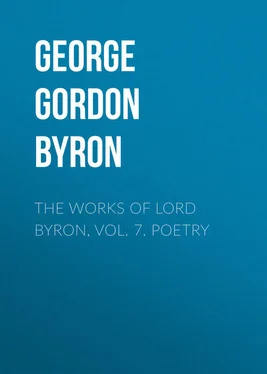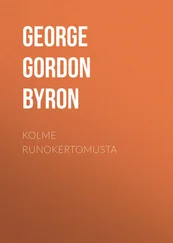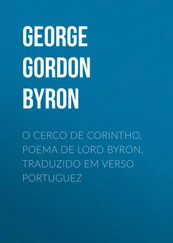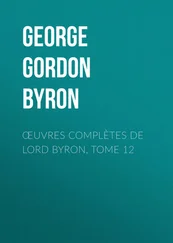George Gordon Byron - The Works of Lord Byron, Vol. 7. Poetry
Здесь есть возможность читать онлайн «George Gordon Byron - The Works of Lord Byron, Vol. 7. Poetry» — ознакомительный отрывок электронной книги совершенно бесплатно, а после прочтения отрывка купить полную версию. В некоторых случаях можно слушать аудио, скачать через торрент в формате fb2 и присутствует краткое содержание. ISBN: , Жанр: foreign_antique, foreign_prose, foreign_poetry, на английском языке. Описание произведения, (предисловие) а так же отзывы посетителей доступны на портале библиотеки ЛибКат.
- Название:The Works of Lord Byron, Vol. 7. Poetry
- Автор:
- Жанр:
- Год:неизвестен
- ISBN:http://www.gutenberg.org/ebooks/27577
- Рейтинг книги:5 / 5. Голосов: 1
-
Избранное:Добавить в избранное
- Отзывы:
-
Ваша оценка:
- 100
- 1
- 2
- 3
- 4
- 5
The Works of Lord Byron, Vol. 7. Poetry: краткое содержание, описание и аннотация
Предлагаем к чтению аннотацию, описание, краткое содержание или предисловие (зависит от того, что написал сам автор книги «The Works of Lord Byron, Vol. 7. Poetry»). Если вы не нашли необходимую информацию о книге — напишите в комментариях, мы постараемся отыскать её.
The Works of Lord Byron, Vol. 7. Poetry — читать онлайн ознакомительный отрывок
Ниже представлен текст книги, разбитый по страницам. Система сохранения места последней прочитанной страницы, позволяет с удобством читать онлайн бесплатно книгу «The Works of Lord Byron, Vol. 7. Poetry», без необходимости каждый раз заново искать на чём Вы остановились. Поставьте закладку, и сможете в любой момент перейти на страницу, на которой закончили чтение.
Интервал:
Закладка:
Then he gazed on a town by besiegers taken,
Nor cared he who were winning;
But he saw an old maid, for years forsaken,80
Get up and leave her spinning;
And she looked in her glass, and to one that did pass,
She said – "pray are the rapes beginning?" 41 41 [Compare Don Juan , Canto VIII. stanza cxxxii. line 4. Sir Walter Scott ( Journal , October 30, 1826 [1890, i. 288]), tells the same story of "an old woman who, when Carlisle was taken by the Highlanders in 1745, chose to be particularly apprehensive of personal violence, and shut herself up in a closet, in order that she might escape ravishment. But no one came to disturb her solitude, and … by and by she popped her head out of her place of refuge with the pretty question, 'Good folks, can you tell me when the ravishing is going to begin?'" In 1813 Byron did not know Scott, and must have stolen the jest from some older writer. It is, probably, of untold antiquity.]
But the Devil has reached our cliffs so white,
And what did he there, I pray?
If his eyes were good, he but saw by night
What we see every day;
But he made a tour and kept a journal
Of all the wondrous sights nocturnal,
And he sold it in shares to the Men of the Row ,90
Who bid pretty well – but they cheated him, though!
The Devil first saw, as he thought, the Mail ,
Its coachman and his coat;
So instead of a pistol he cocked his tail,
And seized him by the throat;
"Aha!" quoth he, "what have we here?
'T is a new barouche, and an ancient peer!" 42 42 [The "Four-Horse" Club, founded in 1808, was incorrectly styled the Four-in-Hand Club, and the Barouche Club. According to the Club rules, the barouches were "yellow-bodied, with 'dickies,' the horses bay, with rosettes at their heads, and the harness silver-mounted. The members wore a drab coat reaching to the ankles, with three tiers of pockets, and mother-o'-pearl buttons as large as five-shilling pieces. The waistcoat was blue, with yellow stripes an inch wide; breeches of plush, with strings and rosettes to each knee; and it was de rigueur that the hat should be 3-1/2 inches deep in the crown." (See Driving , by the Duke of Beaufort, K.G., 1894, pp. 251-258.) The "ancient peer" may possibly be intended for the President of the Club, Philip Henry, fifth Earl of Chesterfield (1755-1815), who was a member of the Privy Council, and had been Postmaster-General and Master of the Horse.]
So he sat him on his box again,
And bade him have no fear,
But be true to his club, and staunch to his rein,100
His brothel and his beer;
"Next to seeing a Lord at the Council board,
I would rather see him here."
Satan hired a horse and gig
With promises to pay;
And he pawned his horns for a spruce new wig,
To redeem as he came away:
And he whistled some tune, a waltz or a jig,
And drove off at the close of day.
The first place he stopped at – he heard the Psalm110
That rung from a Methodist Chapel:
"'T is the best sound I've heard," quoth he, "since my palm
Presented Eve her apple!
When Faith is all, 't is an excellent sign,
That the Works and Workmen both are mine."
He passed Tommy Tyrwhitt, 43 43 [Sir Thomas Tyrwhitt ( circ . 1762-1833) was the son of the Rev. Edmund Tyrwhitt, Rector of Wickham Bishops, etc., and nephew of Thomas Tyrwhitt, the editor of the Canterbury Tales . He was Private Secretary to the Prince of Wales, auditor of the Duchy of Cornwall (1796), and Lord Warden of the Stannaries (1805). He was knighted May 8, 1812. He was sent in the following year in charge of the Garter mission to the Czar, and on that occasion was made a Knight of the Imperial Order of St. Anne, First Class. He held the office of Gentleman Usher of the Black Rod, 1812-1832. "Tommy Tyrwhitt" was an important personage at Carlton House, and shared with Colonel McMahon the doubtful privilege of being a confidential servant of the Prince Regent. Compare Letter III. of Moore's Twopenny Post-Bag , 1813, p. 12. "From G. R. to the E. of Y – th." "I write this in bed while my whiskers are airing, And M – c has a sly dose of jalap preparing For poor T – mm – y T – rr – t at breakfast to quaff — As I feel I want something to give me a laugh, And there's nothing so good as old T – mm – y kept close To his Cornwall accounts, after taking a dose!" See Gentleman's Magazine , March, 1833, vol. 103, pt. i. pp. 275, 276.]
that standing jest,
To princely wit a Martyr:
But the last joke of all was by far the best,
When he sailed away with "the Garter"!
"And" – quoth Satan – "this Embassy's worthy my sight,120
Should I see nothing else to amuse me to night.
With no one to bear it, but Thomas à Tyrwhitt,
This ribband belongs to an 'Order of Merit'!"
He stopped at an Inn and stepped within
The Bar and read the "Times;"
And never such a treat, as – the epistle of one "Vetus," 44 44 ["Vetus" [Edward Sterling] contributed a series of letters to the Times , 1812, 1813. They were afterwards republished. Vetus was not a Little Englander, and his political sentiments recall the obiter dicta of contemporary patriots; e. g. "the only legitimate basis for a treaty, if not on the part of the Continental Allies, at least for England herself [is] that she should conquer all she can, and keep all she conquers. This is not by way of retaliation, however just, upon so obdurate and rapacious an enemy – but as an indispensable condition of her own safety and existence." The letters were reviewed under the heading of "Illustrations of Vetus," in the Morning Chronicle , December 2, 10, 16, 18; 1813. The reviewer and Byron did not take the patriotic view of the situation.]
Had he found save in downright crimes:
"Though I doubt if this drivelling encomiast of War
Ever saw a field fought, or felt a scar,
Yet his fame shall go farther than he can guess,130
For I'll keep him a place in my hottest Press ;
And his works shall be bound in Morocco d'Enfer ,
And lettered behind with his Nom de Guerre ."
The Devil gat next to Westminster,
And he turned to "the room" of the Commons;
But he heard as he purposed to enter in there,
That "the Lords" had received a summons;
And he thought, as "a quondam Aristocrat,"
He might peep at the Peers, though to hear them were flat;
And he walked up the House so like one of his own,140
That they say that he stood pretty near the throne.
He saw the Lord Liverpool seemingly wise,
The Lord Westmoreland certainly silly,
And Jockey of Norfolk – a man of some size —
And Chatham, so like his friend Billy; 45 45 [Robert Banks Jenkinson (1770-1828), second Earl of Liverpool, on the assassination of Perceval, became Prime Minister, June 7, 1812; John Fane (1759-1841), tenth Earl of Westmoreland, was Lord Privy Seal, 1798-1827; Charles Howard (1746-1815), eleventh Duke of Norfolk, known as "Jockey of Norfolk," was a Protestant and a Liberal, and at one time a friend of the Prince of Wales. Wraxall, Posthumous Memoirs , 1836, i. 29, says that "he might have been mistaken for a grazier or a butcher by his dress and appearance." He figures largely in Gillray, see e. g. "Meeting of the Moneyed Interest," December, 1798. John Pitt (1756-1835), second Earl of Chatham, the hero of the abortive Walcheren expedition, had been made a general in the army January 1, 1812. He "inherited," says Wraxall, ibid. , iii. 129, "his illustrious father's form and figure; but not his mind."]
And he saw the tears in Lord Eldon's eyes,
Because the Catholics would not rise,
In spite of his prayers and his prophecies;
And he heard – which set Satan himself a staring —
A certain Chief Justice say something like swearing . 46 46 [Edward Law (1750-1818), first Baron Ellenborough, Lord Chief Justice of the King's Bench, 1802-18, was given to the use of strong language. His temper (see Moore's "Sale of the Tools") was "none of the best." On one occasion, speaking in the House of Lords (March 22, 1813) with regard to the "delicate investigation," he asserted that the accusation ["that the persons intrusted had thought fit to fabricate an unauthorized document"] "was as false as hell;" and by way of protest against the tedious harangues of old Lord Darnley, "I am answerable to God for my time, and what account can I give at the day of judgment if I stay here longer?"]
And the Devil was shocked – and quoth he, "I must go,151
For I find we have much better manners below.
If thus he harangues when he passes my border,
I shall hint to friend Moloch to call him to order."
Интервал:
Закладка:
Похожие книги на «The Works of Lord Byron, Vol. 7. Poetry»
Представляем Вашему вниманию похожие книги на «The Works of Lord Byron, Vol. 7. Poetry» списком для выбора. Мы отобрали схожую по названию и смыслу литературу в надежде предоставить читателям больше вариантов отыскать новые, интересные, ещё непрочитанные произведения.
Обсуждение, отзывы о книге «The Works of Lord Byron, Vol. 7. Poetry» и просто собственные мнения читателей. Оставьте ваши комментарии, напишите, что Вы думаете о произведении, его смысле или главных героях. Укажите что конкретно понравилось, а что нет, и почему Вы так считаете.












